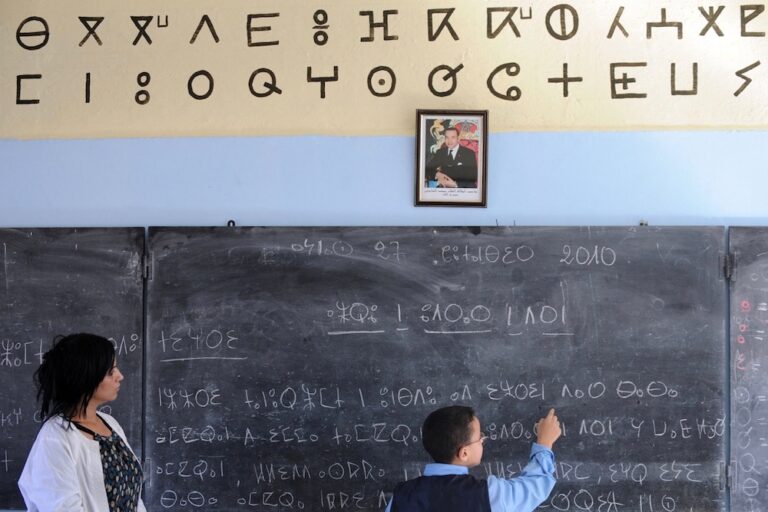(RSF/IFEX) – In a letter to King Mohammed VI, RSF expressed its indignation over the seizure of the weekly “Demain Magazine” and the authorities’ use of intimidation tactics against Ali Lmrabet, publication director and RSF correspondent. Robert Ménard, the organisation’s secretary-general, asked the king “to personally intervene so that the newspaper, one of the rare […]
(RSF/IFEX) – In a letter to King Mohammed VI, RSF expressed its indignation over the seizure of the weekly “Demain Magazine” and the authorities’ use of intimidation tactics against Ali Lmrabet, publication director and RSF correspondent. Robert Ménard, the organisation’s secretary-general, asked the king “to personally intervene so that the newspaper, one of the rare ones in Morocco that is truly independent, can be published normally. It’s all the more outrageous since no court decision justifies this measure. Ali Lmrabet paid the fine within the time limit he was given to pay it off. Why continue to harass him?” On 12 December 2001, the organisation had already appealed to the king: “As king of Morocco, responsibility for the exercise of justice in the kingdom lies with you. Therefore, it is up to you to act.”
According to information gathered by RSF, the weekly “Demain Magazine” was seized on 21 December in the late afternoon. That same day, members of the counter-espionage services (Direction de la surveillance du territoire, DST) were stationed outside publication director Lmrabet’s home for the entire day. “This ban is totally illegal,” the journalist told RSF, adding that in order for his rights to be respected the only solution left is to start a hunger strike. On 20 December, the Rabat administrative tribunal declared itself incapable of dealing with Lmrabet’s complaint against the 8 December seizure of the newspaper.
On 8 December, the newspaper was seized by police after going on sale. The authorities claim that Lmrabet did not pay his fine, even though the journalist’s lawyer has assured that “the required sum was paid, despite the stalling and procrastination tactics of the Rabat Prosecutor’s Office, led by the king’s prosecutor, Abdeslam Imani.” On 21 November, the Rabat Tribunal sentenced the publication director to four months’ imprisonment and a fine of 30,000 dirhams (approx. US$2,600; 3,000 euros). Lmrabet managed to collect the money needed to pay the fine on the evening of 4 December. On 7 December, the Rabat Prosecutor’s Office first rejected the journalist’s cheque, demanding an accompanying letter. Once the letter was provided, the Prosecutor’s Office demanded that he pay the fine in cash. Having returned with the necessary cash and the letter, the journalist’s lawyer found the tribunal’s cashier’s desk closed and learned that the prosecutor was absent. The fine was finally paid a few hours later At the same time, Lmrabet was informed that his newspaper’s distributor was forced to sign a statement in which he pledged not to distribute “Demain Magazine”.
Lmrabet was prosecuted for “distribution of false information undermining or likely to undermine public order”. An article published in the 20 October edition of “Demain Magazine”, titled “The Skhirat Palace is reportedly for sale”, was described by the Rabat first instance prosecutor as a “fabric of false information and totally false allegations.” At the time, Lmrabet told RSF, “They want to humiliate us. It is a reflection of today’s Morocco.” Lmrabet believes that the real reason for the legal action against him is the publication in his newspaper’s 27 October edition of excerpts from Jean-Pierre Tuquoi’s most recent book about Morocco, titled “The Last King”, as well as his articles about Moulay Hicham, the king’s cousin. Though the journalist had decided not to appeal the sentence, the Prosecutor’s Office itself lodged an appeal on 1 December.


